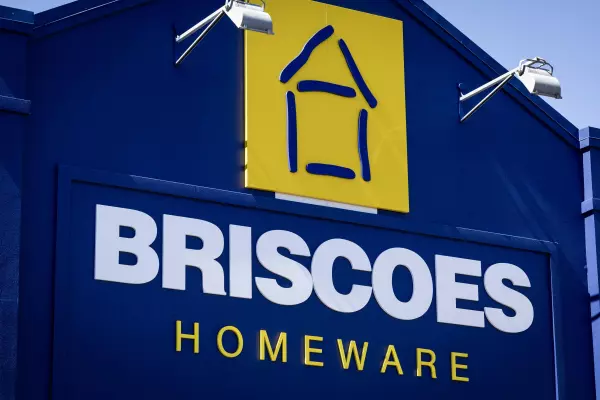Abano Healthcare's board has held 52 meetings since July last year, in addition to its normal monthly meetings, to deal with various schemes of arrangement.
This is a small company. It has a market capitalisation of $71 million and paid its eight directors less than $600,000 in the year ended May 2019 – Abano normally has seven directors but one resigned and another was appointed during that year.
Abano, which holds the dubious distinction of having survived six takeover attempts through both schemes and traditional takeovers governed by the Takeovers Code since 2007, more than any other NZX-listed company, is possibly an outlier.
It survived the latest attempt, a scheme, only at the last hurdle: 99.5 percent of shares voted at a special meeting on March 20 were in favour and those 21.6 million shares represented more than 82 percent of all shares on issue.
So, unlike in the previous attempts, Abano's shareholders were overwhelmingly in favour of the latest takeover attempt.
But the bidder, Australia-based private equity firm, BGH Capital and the Ontario Teachers' Pension Plan Board, pulled the offer on March 30 because of the "material adverse change" of the coronavirus crisis, which forced Abano to temporarily close all its dental practices in New Zealand and Australia.
Abano's experience highlights the inherent disadvantage listed companies face when dealing with schemes of arrangement, which lack the protections contained in the Takeovers Code.
Who foots the bill?
A very glaring difference is that when a takeover subject to the Takeovers Code fails, the bidder is obliged to compensate the target company for the costs it incurred in dealing with the bid.
There is no such obligation on bidders attempting a scheme of arrangement, unless it is written into whatever contract the bidder and target company sign.
But its directors did have an obligation to take scheme offers seriously, particularly since Abano has been performing poorly, and to give shareholders the opportunity to vote on the most credible offer the directors could wrangle.
Another major difference between schemes and traditional takeovers is that the Takeovers Code sets out a strict timetable that bidders must follow. In theory at least that limits the disruption a company faces from a bid.
It's obvious why so many bidders of late have favoured schemes of arrangement. They are much easier to get over the line if the bidder can persuade the target's directors to support their offer.
Classic takeovers covered by the Takeovers Code require acceptances from holders of 90 percent of the shares before the bidder can move to compulsory acquisition of the remainder.
But schemes require that at least 50 percent of shares on issue must be voted in favour and that at least 75 percent of shares voted must also be in favour. Then, it's winner takes all.
Lifting the veil
What is often not appreciated is that bidders opting for schemes usually have a significant information advantage over shareholders of the target company because they're almost always granted due diligence rights.
That means they get access to information that hasn't been made public.
In the latest takeover attempt, Abano's board first revealed it had received "various expressions of interest" on July 1 last year and later told BusinessDesk more than 30 potential bidders had emerged.
Chair Pip Dunphy said these bidders were provided with "what you might call a flyer document, most of it in the public domain" and "nothing highly sensitive."
Dunphy wouldn't say how many bidders ended up on the short list, other than that it was "a very limited number."
But it provided access for that short list of bidders to do due diligence, which obviously included information not in the public domain and not available to shareholders – it needs to be stressed that the shareholders own the company.
It is de rigeur for any potential bidder granted due diligence to have to sign non-disclosure agreements, but it is usually impossible to prove any breaches of such agreements.
Journalists on the receiving end of leaks are not going to disclose who the leaker was and the incentive for both successful and unsuccessful bidders is to leak.
The successful bidder has a built-in incentive to talk down the target company's prospects while it tries to persuade shareholders to accept its offer, and avoids having to raise the price.
Unsuccessful bidders have an obvious incentive to try to derail the successful bid.
A dripping pipe
There was a leak of confidential information in Abano's case. BGH and the Ontario pension fund and another unnamed bidder have both made proposals in a seventh attempted takeover bid but Abano's board has not seen fit to recommend either yet.
But it was reported that the BGH camp had submitted two proposals, one including an offer at $3 per share and another at $3.25, information Abano confirmed was correct while expressing concern that "confidentiality has been breached by a source with knowledge of the process."
The offer shareholders had voted on was at $5.70 but Abano shares are now trading at $2.70.
Sometimes the target company itself has reason to suppress information, or its directors want to keep key pieces of information from their own shareholders.
That was clearly the case with Metlifecare when 5.4 percent shareholder, Hong Kong-based Maso Capital Partners, sent a letter requisitioning a meeting to vote on unseating chair Kim Ellis.
Directors used Maso’s covering letter as a reason never to tell the other shareholders. That letter said Maso would withdraw its requisition if Metlifecare's directors re-engaged with Sweden's EQT to try to reach an amended takeover deal.
The directors announced their re-engagement with EQT at about the same time as they said they opened Maso's letter.
And now four of Metlifecare's six directors are backing a new scheme from EQT priced at $6 per share, a dollar less than the earlier deal that the coronavirus crisis derailed. It values Metlifecare at $1.28 billion, down from the $1.49 billion value of the earlier offer.
Time-consuming
Metlifecare wouldn't answer when asked about how much directors' time EQT's offers have taken, but clearly it must have been considerable since the board first announced it had received a non-binding indicative offer on Nov. 20 last year.
EQT is also armed with information not provided to shareholders since the company gave it about a month to do due diligence.
In December, the board announced it had also had approaches from two other parties but noted they were "not as developed" as EQT's – although EQT hadn't been named at that stage.
So there was ample opportunity for any would-be alternative bidder to emerge.
But the original EQT offer likely would have sailed through, absent the coronavirus crisis, and other schemes have proceeded placidly to consummation.
Take the $2.56 billion offer for Trade Me from British private equity firm Apax Partners, for example.
Shareholders approved the offer, which was first canvassed in November 2018 at $6.40 per share and then raised to $6.45, in April last year with little drama.
In fact, chair David Kirk wrapped up the meeting to vote on the offer in 32 minutes and only about 20 of the more than 9,000 shareholders bothered to turn up.
Kirk had also been on the bidding side of a scheme of arrangement when he was chief executive of Fairfax and it bought Rural Press in Australia in 2006. He is clearly a fan.
"Schemes of arrangement work well. They are legal process-heavy, but are transparent and open for shareholders and give the board plenty of opportunity to solicit other bids/interest," Kirk told BusinessDesk.
Any other takers?
In the Trade Me case, directors beat the bushes to see if anybody else was interested and KKR, the famous subject of the book, Barbarians at the Gate, put in a higher bid and Apax matched it.
"Both Apax and KKR were given limited information that wasn't public to allow them to make/confirm their final bids. Once we committed to Apax, they were, of course, able to undertake extensive due diligence," Kirk said.
Whether a scheme or traditional takeover, hostile or friendly, Kirk's view is that they're all time-consuming for target company directors, although they don't have to allow due diligence in the case of a hostile takeover, he said.
But in all these situations, the bidders ended up with more information than the shareholders of the companies they targeted.














